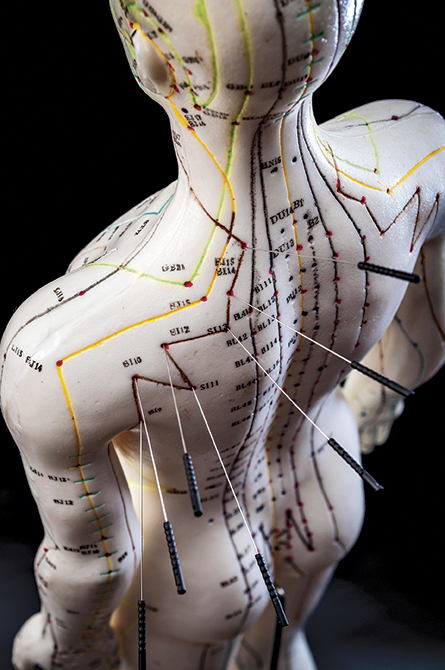By Barbara Greenwood-Dufour
The Canadian Mental Health Association estimates that each year, one in five Canadians will experience a mental health problem. These conditions are often debilitating and can be associated with considerable personal, societal, and economic costs. However, there are a wide range of therapies to treat mental health problems.
In addition to conventional treatments, such as medication and Western psychotherapy, there are also several alternative treatment options for mental health problems. These include natural health products – such as vitamin, mineral and herbal supplements – as well as alternative therapies such as reiki and acupuncture. Some see these alternative treatment methods as potential alternatives to conventional medicine or, at least, as a way to increase the effectiveness of conventional approaches when used in parallel.
CADTH – an independent organization that researches, evaluates and summarizes research on drugs and medical devices – recently conducted a search for summaries of the best and latest evidence on alternative health care providers and medical products. natural health to manage mental health issues. CADTH then reviewed the results and findings detailed in the summaries of these studies and produced a summary of the summaries on what was found. Although this is not an exhaustive review of studies and CADTH has not critically evaluated the evidence, it gives us a general idea of what the evidence says on the topic.
CADTH found systematic studies of several alternative treatments for mental health problems, the majority of which suggest it is still unclear whether they actually work. There isn’t much scientific evidence to support these practices, even though many of them have been used for centuries.
For example, CADTH identified studies investigating acupuncture for the treatment of depression. Originating in China, acupuncture has long been used as a treatment for a wide range of conditions. But the evidence is unclear and contradictory. A review concludes that it is unclear whether acupuncture is effective alone or whether it improves the effectiveness of pharmaceutical treatments, given the low quality of evidence. Similarly, a review of the evidence for acupuncture for postpartum depression is inconclusive. Only one review, focusing on depression and depression-related insomnia, comes to a firmer conclusion, finding no difference in symptom improvement between individuals treated with acupuncture and those treated with Western medicine, adding that combining acupuncture with Western medicine seems to be a solution. more effective than treatment with Western medicine alone.
CADTH discovered several studies on a variety of natural health products intended to treat mental health problems. For example, five systematic studies were found on St. John’s Wort to treat depression – this herbal remedy has been used for hundreds of years to treat mental health issues. Three reviews specifically examine its use to treat mild to moderate depression, and two focus on major depressive disorder. All studies seem to suggest that St. John’s Wort may be effective in improving depressive symptoms and may even be as effective as antidepressants. However, the two reviews that focus specifically on the use of St. John’s Wort to treat major depressive disorder note that the available evidence tends to be of low quality.
Another ancient plant treatment that has been studied is saffron. CADTH identified four studies suggesting the drug may have some effectiveness against depression. A review of herbal remedies for treating depression and another specifically on saffron for mild to moderate depression both found saffron to be as beneficial as antidepressant medications. Similarly, two other studies focused on major depressive disorder found that clinical trials conducted so far suggest that saffron may improve symptoms in patients suffering from this specific form of depression.
Research into alternative treatments and natural health products for depression and other mental health problems appears encouraging. But it is generally contradictory and unclear. Additionally, although the CADTH high-level abstract review did not assess the level of bias in the studies it identified, several authors of the systematic review noted in their abstracts that studies Individuals presented a high level of bias. Additionally, despite the fact that many people seek alternative treatments believing they have a lower risk of side effects compared to conventional treatments, the evidence supporting this hypothesis is unclear. For all these reasons, these are therapies that should be used with caution.
If you would like to read the full summary of CADTH summaries on alternative practitioners and treatments for mental health problems, it is available for free at www.cadth.ca/reports. To learn more about CADTH, visit www.cadth.cafollow us on Twitter: @CADTH_ACMTS, or speak to our local liaison: www.cadth.ca/contact-us/liaison-officers.
Barbara Greenwood Dufour is a Knowledge mobilization agent.
